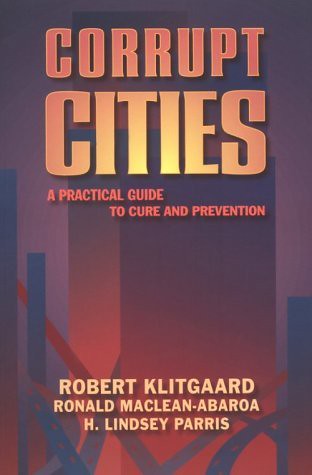Local corruption and ethics
The Post has published a bunch of articles, columns, and editorials about corruption in DC and Prince George's County.
When they did their first go-around wrt PG County, I opined that they missed the point, that systems of corruption are engendered by how land use and development policy works there. That as long as the County Council and County Executive significantly insert themselves into the approval processes, there is a great deal of opportunity for corruption.
It's not any different in DC. While the Post is right to editorialize today, "City under a cloud: The District needs ethics reform; this bill isn't it," that the currently proposed legislation on ethics is inadequate, it's good to see them think a bit more systematically as expressed in the editorial. (Generally, I find that writers for daily newspapers are almost congenitally unable to think in terms of systems, which I ascribe to the fact that a newspaper is published every day and they keep focused on articles for the next day, and lack the "luxury" of thinking more long term.) From the article:
Instead of creating dubious layers of government where investigations can go to die, the council should strengthen the agencies — the office of campaign finance, the inspector general and the attorney general’s office — already in place. The office of attorney general, which already has an ethics officer, seems the appropriate place to vest more authority — particularly since it will become an elected office in 2014. It’s to the lasting shame of the council that, in a fit of pique with then-Attorney General Peter Nickles, it stripped the office of most of its subpoena powers. Another problem is the attorney general’s inability to bring criminal cases against those who commit offenses against the city.
Note though that the Post was against an elected attorney general position ("The case against an elected D.C. attorney general"). I was not. For exactly this reason, that we need to develop more positions in government that have strength, and that we build more checks and balances into the system.
(Note that the initial effort by CM Mendelson was to put more legislatively-passed provisions on the AG position. I, and others I presume, encouraged him to instead put forward legislation making the AG position independent of the Mayor, as a separately elected position. And that's what he did.)
In fact, now I think that the Inspector General position should be elected as well, so that the position is protected from undue influence of the Executive.
The problem with the Home Rule Charter is that it makes the Executive (the Mayor) all powerful, and that the City Council can pass laws, but exempt themselves from the requirements that pertain to the Executive Branch--DC Council can award contracts without RFPs--this was a problem with the proposal to redevelop the Florida Market (which is why I can never support Vincent Orange, who ringleaded that deal, or Harry Thomas, who kept that going after he replaced VO).
Since there is so much pressure within the local economy to jump in bed with developers (see "The City as a Growth Machine: Toward a Political Economy of Place" by Harvey Molotch), the point is to build robust systems that are resilient in promoting the right behavior.
One way is to change the City Council positions so that they are not "part time."
What I would like the various local statehood campaigns to do is to refocus, at least for awhile, on good government, and ridding our city of the corrupt practices that run rampant.
We can all contribute to this effort by starting with reading Corrupt Cities: A Practical Guide to Cure and Prevention and by exploring the Governance and Anti-Corruption website of the World Bank.

Labels: attorney general, corruption, government oversight, participatory democracy and empowered participation, provision of public services



0 Comments:
Post a Comment
<< Home